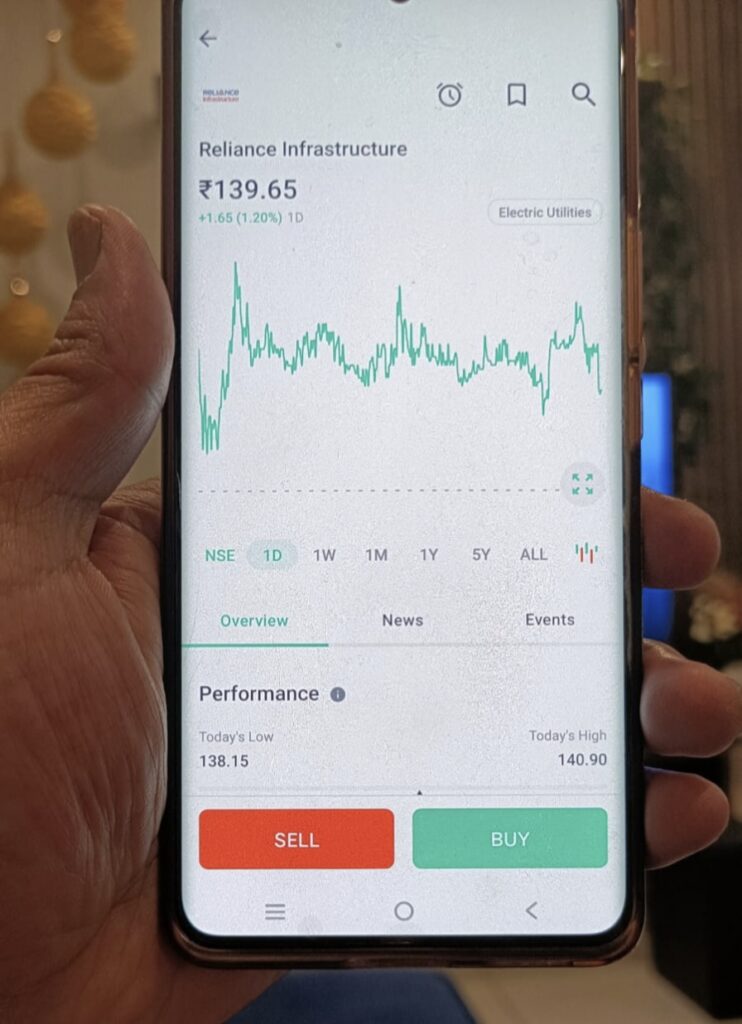Want to know about Stock Market? Then you have arrived at right resources – As we have researched and covered various aspects of Stock market in this Blog which will help readers to have in depth information and understanding.

History of Stock Market
The international economy depends heavily on the share and stock markets, which give businesses a way to raise capital and let investors profit from their investments. From its inception to its present state, the stock market has undergone major changes over the years. In this essay, we’ll look at the share market’s development and history, as well as how it affects the market.
The first stock exchange was founded in Amsterdam in 1602, beginning the background of the stock market. Buyers can now own a portion of the Dutch East India Company’s profits thanks to the public distribution of its initial stock. As a result, the Amsterdam Stock Exchange was established, enabling investors to purchase and sell business property.
Another markets, such as the New York Stock Exchange, which was established in 1817 and the1801 founded London Exchange all contributed to the growth of the stock market. These markets gave buyers and sellers access to an open market while allowing traders to trade shares of various companies.
With the development of new industries like technologies, aircraft, and automobiles in the 20th century, the stock market kept expanding. These businesses were able to raise money for research and development thanks to the stock market, which resulted in significant scientific developments and economic expansion.
The introduction of online trading, the development of electronic communication networks, and the globalization of financial markets all contributed to major changes in the stock market at the beginning of the twenty-first millennium. The market is now more available to a wider range of investors thanks to these changes, which have increased efficiency and liquidity.
The discuss and share market’s impact on the economy is significant, as it provides businesses with a means to increase money and investors with an opportunity to make a return on their investment. Companies may concern shares to the public to increase capital, enabling them to fund research and development, expand their operations, and invest in new technology.
The stock market also serves as a barometer of the market’s health, reflecting the economy’s view of a company’s financial performance and the general state of the economy. A good stock market can indicate economic growth, while a downturn may signal a recession or financial contraction.
The property market’s impact on the economy extends beyond the firms listed on the trade, as it can influence customer confidence and spending. A powerful property industry can lead to increased consumer confidence and wasting, while a poor business can lead to a decrease in consumer spending and affecting the broader economy.
The property market’s role in the economy is not without its challenges and risks, as it is subject to fluctuations, fluctuation, and meditation. The property market is highly influenced by different factors, including financial indicators, social events, and business- certain news, leading to significant market fluctuations.
The share market’s threats can also result in significant financial deficits for investors, making it important for investors to practice caution and diversify their investments. Investors may do their research and get professional advice before investing in the stock market to minimize risks.
In summary, the share and stock market is an important component of the global market, providing businesses with a means to raise money and traders with an opportunity to make a return on their investment. The stock market’s history and development reflect the changes in the economy, from its inception to its present condition, and its impact on the economy extends beyond the firms listed on the exchange
How the American/Indian economy is impacted by stocks and shares.

The American/Indian economy depends heavily on the stock market because it gives businesses the means to increase capital and investors the chance to profit from their investments. Due to changes in the economy and the nation’s economic policies, the Indian stock market has undergone major changes over the years.
The standard index, the BSE Sensex, reached record highs in early 2021, demonstrating the American stock market’s recent significant growth. The nation’s economic growth, supportive government policies, and the global economic recovery have all been blamed for the development.
Due to the expansion of the Indian stock market, more foreign buyers are now interested in the nation’s emerging areas.
The government has also introduced various reforms to promote investment and growth, such as the Goods and Services Tax( GST), the Insolvency and Bankruptcy Code( IBC), and the Digital India program.
The American stock market’s growth has also led to increased participation by retail investors, who have increasingly turned to the property market as a means to make a return on their investment. The rise of mobile trading systems and the availability of online trading has made it easier for retail traders to access the stock market.
Nevertheless, the Indian stock market is not without its problems, as it is subject to fluctuations, volatility, and meditation. leading to significant market fluctuations.
The COVID- 19 pandemic likewise had a significant impact on the Indian property market, with the standard index experiencing major fluctuations and volatility. The pandemic led to a slowdown in economic activity, affecting different sectors of the economy, including the share market.
The Securities and Exchange Board of India( SEBI) regulations, which aim to increase transparency and safeguard investor interests, are just a few of the measures the Indian government has put in place to address the stock market’s challenges. The National Infrastructure Pipeline( NIP) and the Atmanirbhar Bharat Abhiyan are two additional initiatives the government has put in place to support economic stability and growth.
In summary, the Indian stock market is essential to the nation’s economy because it gives businesses the means to raise funds and investors the chance to profit from their investments. The country’s economic development and supportive government policies are reflected in the development of the stock market, which has increased wholesale and foreign investment. The government’s policies to support economic growth and stability aim to address these issues and guarantee the inventory market continue to grow and develop, despite the numerous challenges the Indian stock exchange faces.
How will stock market be helpful for working and non – working class people.

People have the chance to spend their money on the stock market and possibly generate returns. Indians may increase their wealth over time by making stock market investments. We’ll look at how Indians can use the stock market to make money and secure their financial future in this article.
1. Long-term investment: Purchasing stocks over the long term is one of the main ways that Indians can profit from the stock market. Investors may be able to make sizable returns as a business expands and raises its earnings by buying shares of that company and holding them for an extended period of time. The property market has historically yielded higher returns over time than bonds or fixed payments, which are other investment options.
2. Expansion: Diverting Indians’ investment portfolios is another way they can make money on the stock market. Investors may lower their risk and possibly increase their returns by investing in a variety of stocks from various industries and sectors. Expansion offers opportunities to profit from a variety of sources and shields an investor’s portfolio from market fluctuations.
3. Mutual funds: are a great choice if you want to invest in the stock market but don’t have the time, expertise, or tools to do so on your own. Mutual funds combine the resources of numerous investors to invest in a range of stocks, bonds, and other stocks, diversifying the market and increasing the likelihood of profit. Banks, brokerage firms, and mutual fund companies are just a few of the ways that Indians you invest in mutual funds.
4. IPOs: Indian companies that go public offer Initial Public Offerings( IPOs) to investors. Investing in an Offering can provide an opportunity for substantial returns, as the price of the shares can usually rise swiftly after the Offering. However, investing in Etfs can be risky, and buyers should carefully consider the company’s finances, growth prospects, and different factors before investing.
5. Investing: Trading in the stock market involves buying and selling stocks often, possible earning profits from the rate fluctuations in the short term. However, investing requires a significant amount of knowledge, study, and knowledge, and can be difficult for untrained investors. It is essential to have a detailed understanding of the market before engaging in investing.
6. Investing in blue- device companies: Orange- chip companies are stocks of companies that have a proven track record of steady earnings and development, making them a reliable investment choice. These stocks usually pay regular payouts, providing a steady income for investors. Investing in blue- chip stocks is a safer investment choice compared to investing in smaller, riskier companies
7. Taxes benefits: Investing in the stock market can offer tax benefits to Indians. For instance, long- term capital gains from investments in stocks are tax- complimentary if held for more than one season. Moreover, some mutual funds offer tax advantages under Section 80C of the Income Tax Act, which can help people save money on fees.
In conclusion, the stock market can give Indians with a variety of options to acquire money and develop their financial future. Long- term investment, expansion, mutual funds, IPOs, investing, investing in blue- chip stocks, and tax benefits are some of the ways in which Indians may use the property market to their benefit. However, investing in the stock market comes with risks, and buyers may do detailed research and consult with financial advisors before making any investment decisions. With the right understanding, planning, and strategy, Indians can use the stock market to acquire money and develop a financially stable future.
What are potential methods to analyze stock market?
Analyzing the share or discuss market is a complicated process that requires careful consideration of several factors. There are many different methods to analyzing the stock market, and no one method can guarantee success. However, some of the best way to evaluate the stock or share industry are:
1. Basic research: Basic research involves examining a bank’s financial and economic factors, such as income, earnings, bill, and market trends, to decide its value and potential for growth. Fundamental analysis can help traders determine businesses that are undervalued or overvalued, allowing them to make educated investment choices.
2. Professional research: Professional research involves examining the share market’s price and volume data to identify patterns and trends that you suggest possible future price movements. Technical analysts use tables and other tools to identify assistance and resistance levels and monitor developments in the market, helping traders make short- term buying decisions.
3. Business sentiment research: Marketplace sentiment analysis involves examining the overall feeling or attitude of the market to determine its direction. Business sentiment can be influenced by factors such as economic signals, reports events, and investment philosophy. By analyzing market sentiment, investors you identify possible market trends and make educated investment decisions
4. Financial analysis: Financial research involves examining economic factors such as inflation, interest rates, and Economy development to determine the overall health of the economy and its possible impact on the stock market. By understanding the broader economic framework, investors may identify possible market trends and make educated investment decisions.
5. Business analysis: Industry evaluation involves examining the certain sectors or industries in which a organization operates to establish its potential for growth and profitability. By understanding the special challenges and possibilities facing each market, investors can identify possible investment opportunities and make educated investment decisions.
It is important to note that no one method of analysis is failsafe, and successful investors usually use a combination of these methods. Moreover, it is essential to conduct thorough research and consult with financial advisors before making any investment decisions. With the right knowledge and strategy, traders can analyze the stock or share business effectively and make educated investment choices that can lead to long- term achievement.
The greatest events that effected the stock market worldwide

The greatest events that effected the stock market worldwide
The property business is a complex and possibly- changing environment that can be influenced by a variety of activities, both positive and negative. In the course of history, there have been several significant events that have had a major impact on the stock market globally. In this essay, we will examine some of the greatest events that have affected the share market and how they have shaped now.
1. Black Tuesday( October 29, 1929) One of the most significant events in the history of the property market is the crash of 1929. This occurrence, also known as Black Tuesday, marked the beginning of the Great Depression, which lasted for nearly a decade. The stock market crash was caused by a combination of factors, including over- meditation, extreme loans, and a lack of government legislation. In just one day, the Dow Jones Industrial Average lost 12%, and by the end of the week, it had lost 23%. This event had a tremendous impact on the US economy and led to widespread unemployment and poverty.
2. World War II( 1939- 1945) The outbreak of World War II had a significant impact on the global economy and the stock market. During the conflict, many companies, such as manufacturing and transportation, were geared towards the war effort, and as a result, the share market experienced significant growth. However, the end of the war led to a period of economic volatility, as companies shifted back to peacetime production. This interval also saw the rise of the United States as a worldwide economic powerhouse, as the nation emerged from the battle relatively unscathed.
3. Dot- com Bubble( 1997- 2001) The dot- com bubble of the late 1990s was a period of intense speculation and investment in internet- related companies. Many of these businesses had little to no income or profits, but their share costs soared as investors placed their bet on the future of the internet. Yet, in 2001, the bubble burst, as many of these companies failed to live up to their publicity, and investors lost billions of dollars. The dot- com balloon had a serious impact on the stock market, as it led to increased scrutiny of tech companies and a shift in investor attitude towards more secure, established companies.
4. September 11 attacks( 2001) The terrorist attacks on September 11, 2001, had a significant impact on the stock market, as it led to a period of uncertainty and fear among investors. In the days following the attacks, the stock market experienced its largest single- day decline in history, with the Dow Jones Industrial Average losing 7.1%. However, the industry rebounded fairly quickly, as the US government took measures to stabilize the economy and provide assistance to affected sectors.
5. Global Financial Crisis( 2007- 2008) The global financial crisis of 2007- 2008 was caused by a combination of factors, including excessive borrowing, lax regulation, and a housing market bubble. The problems led to the collapse of several major financial institutions, including Lehman Brothers, and had a significant impact on the global market and stock market. The problems led to a time of crisis and high poverty, as well as increased government regulation of the financial industry.
6.. Due to widespread business closures and job losses, the COVID-19 pandemic( 2020–) had a significant impact on the world economy and stock market. Investors responded to the uncertainty brought on by the pandemic in March 2020, which saw the stock market’s biggest single-day decline since the 1987 accident. Governments and central banks from all over the world took action to support the economy and stabilize financial markets, which caused the market to rebound fairly quickly.
Finally, a variety of factors have influenced the share market, this was all about stock market.